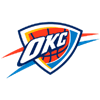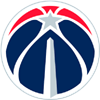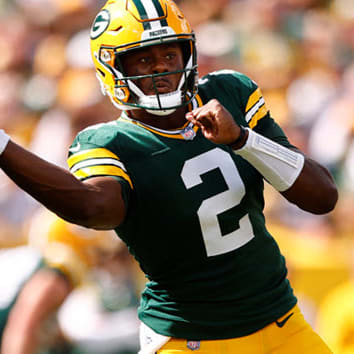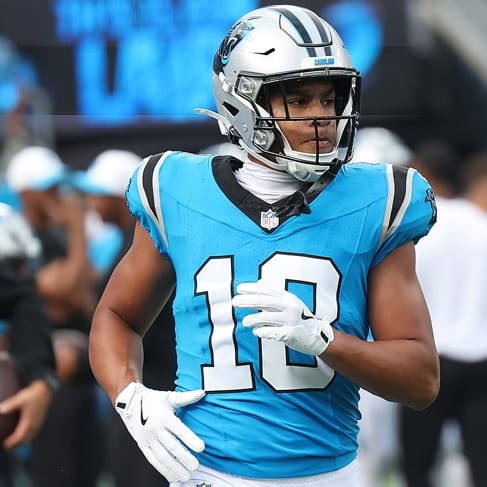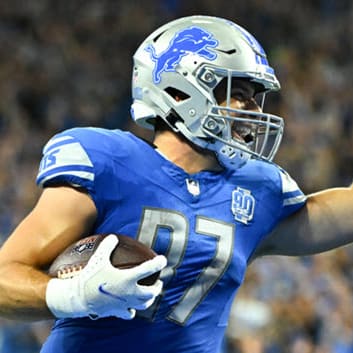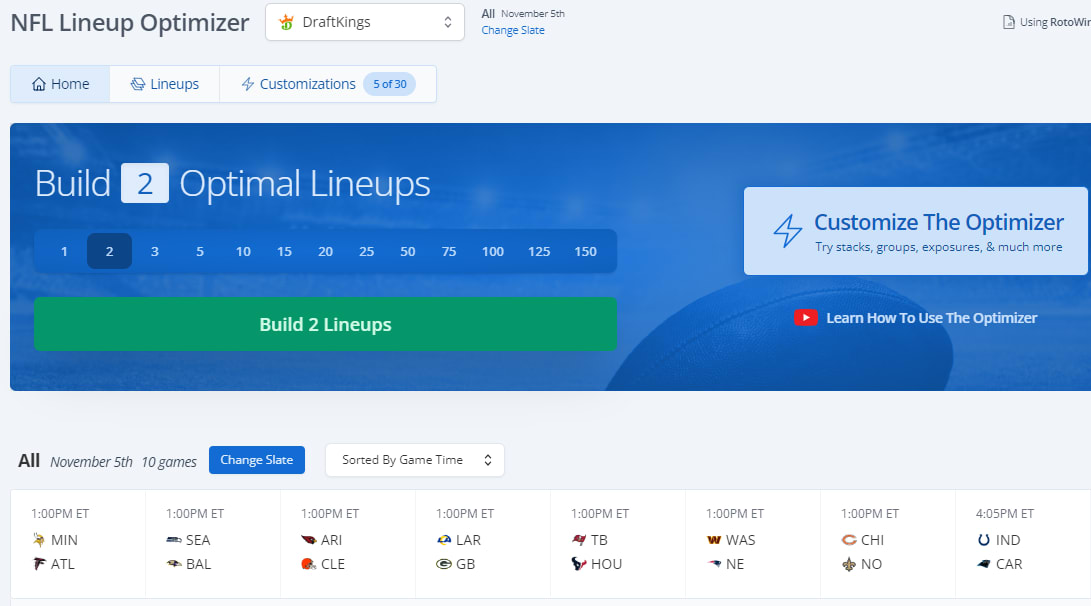Each offseason I try to post a series of articles that go into deep detail to provide a clear scouting report on individual players, both rookies and veterans, with the hopes that the article might clarify the nature of that player and cut through otherwise false assumptions that circulate regarding that player. A lot of the time standard narratives will confuse viewers about who players actually are, and this ostensibly is a corrective to that.
Last year I wrote this article about Zay Jones and how he could prove a good value as a nearly free dynasty pickup. It might have seemed like a weird article when it was posted (Feb. 15) – no one cared about Zay Jones, so doing such a deep dive might have appeared a pointless use of time. Dynasty investors who added Jones before free agency probably got an easy value-pad out of it, though, so I'm trying to write the same article now.
To attempt to identify the Zay Jones of 2023 the candidate will have to be as unconventional as Jones was in February of last year. The criteria are more generally something like this: a free agent receiver who hasn't yet produced in the NFL but has the prospect profile to project for fantasy utility in the event of increased playing time. In short, a long shot with a real shot.
This article will be about Olamide Zaccheaus.
Zacchaeaus has been an efficient receiver for the Falcons on a per-target basis, but his inability to draw targets at a useful rate have kept his fantasy utility in the basement despite an otherwise strong career figure of 8.8 yards per target at a 62.3 percent catch rate. If Zaccheaus could draw targets at a higher rate then his high efficiency might withstand the decreasing returns that typically come with escalated usage.
So is there a scenario where Zaccheaus' target rate increases? This article takes the view that there probably is. That Zacchaeus has drawn just 151 targets on 1,689 snaps is not good and in most cases is a concern not easily dismissed, but there are reasons to believe that with a different type of utilization Zaccheaus would be able to fundamentally transform his production profile.
More specifically, there's reason to think Zaccheaus can drastically increase his target rate while maintaining average or better efficiency if he's used in a low-ADOT slot receiver role. This is a contrast from Atlanta's usage of Zaccheaus to this point, which was mostly a mid-to-high ADOT outside before 2022 before transitioning to a high-ADOT slot role in 2022. If this was the incorrect way to use Zaccheaus – and it definitely was – then this would be a potential excuse for his otherwise low target rate.
INTEL
College Production
Zaccheaus was a high-volume producer as an underneath-oriented receiver at Virginia, where he also posted standout efficiency numbers. Production – the sum value of a player's volume at a given efficiency rate – is generally an indicator of skill set development, and Zaccheaus' production at Virginia clearly implied the presence of an above-average skill set. Zaccheaus mostly played running back his freshman year and did well, taking 33 carries for 262 yards (7.9 YPC) and one touchdown while catching 21 passes for 216 yards and a touchdown. It was his sophomore 2016 season where Zaccheaus began playing receiver.
That sophomore season he caught 51 of 77 targets for 584 yards and seven touchdowns, a catch rate of 66.2 percent at 7.6 yards per target in an offense that completed just 54.6 percent of its passes at 5.9 yards per attempt. To outproduce the team baseline by double-digit catch percentage points and nearly two more yards per target is a significant accomplishment for a player who turned 19 about a month before the season's start. While it's easy to overlook Zaccheaus' production due to its modest volume, within the context of the broader Virginia offense his production was clearly excellent. He actually led Virginia's receivers in receptions – one ahead of third-year player Doni Dowling – and the seven touchdowns easily led the team.
After drastically outplaying the Virginia baseline in 2016 with a 15.8 percent target share, Virginia's coaches decided to make Zaccheaus the focal point of the 2017 offense. Zaccheaus' efficiency took a sharp hit as his target volume nearly doubled to 142 in 13 games, 85 of which he caught for 895 yards and five touchdowns. That's a catch rate of 59.9 percent – a 6.3-point drop from the prior year – and at just a brutal 6.3 yards per target, down 1.3 from 2016. Ugly as the numbers are, Zaccheaus had an excuse: Virginia's baseline was just a 57.8 completion percentage at 6.2 yards per attempt, meaning his efficiency stats were actually above baseline once again. Not just that, but Zaccheaus cleared that team baseline while drawing a 27.4-percent target share and added 27 carries for 182 yards and a touchdown. Ugly or not, Zaccheaus was indispensable to Virginia's 2017 offense in his age-20.0 season.
Each of Zaccheaus' first three collegiate seasons were positive indicators for his skill set, but he encouragingly took another step yet as a fourth-year player in 2018. He maintained the volume gains of the prior year, drawing 136 targets in 13 games, yet posted far better efficiency on that escalated workload. Zaccheaus caught 93 of those targets for 1,058 yards and nine touchdowns, good for a catch rate of 68.4 percent at 7.8 yards per target. Those numbers cleared the Virginia baseline of 63.7 percent completed at 7.7 yards per attempt, a feat accomplished while carrying a mammoth 38.0 percent target share for Virginia.
Zaccheaus' 2018 season was a resounding success and gave him four years of strong age-adjusted production. Players who provide strong age-adjusted production for four years, in each of those four years, almost always have viable NFL skill sets.
Athleticism
Zaccheaus' athletic tools grade as sufficient for an underneath-oriented slot role but not an outside role and not any downfield-oriented role. Athleticism is Zaccheaus' main limitation. Some players lack the athletic tools necessary for their otherwise standout skill sets to materialize at the NFL level. Some players lack the athletic tools but maintain just enough to remain effective at more specialized functions. Zaccheaus is likely the latter.
At 5-foot-8 Zaccheaus is prohibitively short for boundary or downfield functions. His 4.49-second pro day 40-yard dash at 188 pounds is not fast enough to offset his height/reach deficit, which makes it difficult for him to threaten a defense downfield, and especially from the boundary. Because the slot gets cleaner releases and because it doesn't require standout speed to threaten at intermediate and especially low depths, Zaccheaus should still be able to project cleanly to an underneath, horizontally-oriented role. It's worth noting that Zaccheaus is short but very stout for his height, which also bodes well for his ability to hold up as a ballcarrier and general runner after the catch. While Zaccheaus' timed testing does not grade as above average, his uncommon density does offset that somewhat.
NFL Production
Skill sets translate to the NFL field when a prospect has sufficient athletic tools for their skill set to materialize at the pro level. Zaccheaus' collegiate production emphatically says that he has the required skill set to produce at the NFL level. His athletic testing grades less favorably and specifically projects limitations on the question of range – the ability to reach a given point at a competitively fast time and compete at that attack point. The further downfield and the more isolated in alignment Zaccheaus gets the more likely it is that his lack of range would become a production issue. For Zaccheaus' skill set to be realized on the NFL field he needs tasks that require less range – namely shallow, horizontally-oriented routes that create the opportunity to run after the catch. At a stout build and with a pseudo-running back skill set, Zaccheaus is better suited to run in traffic than the typical slot receiver. As much as his lack of height speed limits his effectiveness outside, Zaccheaus' low build and high density are a true asset while running in traffic. This long preface to this section is to anticipate the primary criticism of Zaccheaus' production as an NFL receiver, which is that he has been unable to draw targets often enough to make his otherwise high efficiency useful.
If Zaccheaus drew just 151 targets on 1,689 snaps because he was categorically unable to draw more targets, then his prospects for breaking out as a fantasy asset basically don't exist. But if Zaccheaus' lack of targets could be explained some other way then a change in circumstances might allow him to change his target rate, too. Specifically, the Falcons used Zaccheaus the opposite way to what suits his athletic tools by using him downfield and outside rather than the underneath/intermediate from the slot. If Zaccheaus is at his best in the slot and underneath/intermediate then his lagging target rate could be explained by the fact that the Falcons used him mostly outside in his first three seasons so that Russell Gage could have a near-monopoly on the slot snaps.
In those three seasons Zaccheaus caught 54 passes for 795 yards and five touchdowns on 90 targets and 979 snaps (60.0 percent catch rate, 8.8 YPT). With Gage gone in 2022 the Falcons gave Zaccheaus the primary slot role, in which he caught 40 passes for 533 yards and three touchdowns on 61 targets and 710 snaps (65.6 percent caught, 8.7 YPT). But Zaccheaus still struggled to draw targets, perhaps because the Falcons still used him too far downfield for a player of his limited vertical abilities. Zaccheaus' average depth of target in 2022 was 11.3 yards, 60th percentile among NFL receivers – the figure would be higher yet if you filter for slot receivers. A 5-foot-8 player with 4.50 speed should not be running at a 60th-percentile route depth – he should sooner be running at a route depth of the 20th percentile, because that's more in line with Zaccheaus' cumulative height/speed variable. Speed and reach are how a passing game expresses a threat vertically, so at the very least a 5-foot-8 wideout like Zaccheaus would need to run more like a 4.40 40 to thrive at the depths the Falcons ran him. If another team were to run Zaccheaus at a lower depth then his 4.50 speed would be more likely to prove sufficient and grant him the ability to draw a target once every eight or so snaps rather than the once per every 12 snaps like with Atlanta.
2023 Projection
As much as this article means to make the case that Zaccheaus can thrive as a starting slot receiver in the NFL, he undeniably remains a long shot. And as much as this article set out to identify the closest thing to the 2023 equivalent of what Zay Jones was to the 2022 free agent class, Zaccheaus arguably has more working against him than Jones did. Jones might have been a bust in Buffalo, but he was a former second-round pick all the same. Zaccheaus went undrafted and bizarrely wasn't even invited to the combine, so despite his demonstrable talents, Zaccheaus' pedigree and level of league-wide recognition couldn't be much more modest. Jones wasn't just a former second-round pick – he's also the son of a former first-round pick and starting NFL linebacker (Robert), not to mention the brother of blue chip Texas recruit (Caleb). Zaccheaus has no connections – he's only played for Atlanta, and his college coach (Bronco Mendenhall) has no NFL influence. There's reason to believe Zaccheaus will thrive if given a three-down role as an underneath/intermediate-oriented slot receiver, but if a team gives him that shot it will be from out of nowhere.
With that said, it's easy enough to look around the league and imagine various teams selling themselves on the need for an upgrade in the slot. Particularly if that team imagines its slot receiver doing a lot of running after the catch, Zaccheaus could strike them as a low-risk gamble with some upside at a low price. The Bills, for instance, might be disenchanted with Isaiah McKenzie and Jamison Crowder to the point that they take a flier on Zaccheaus, who would have a good shot to win the lead role on the basis of merit once he got his foot in the door. The Bills have a particular archetype in mind for the slot – shifty and reliable underneath – and Zaccheaus checks that box while distinguishing himself with a superior skill set to McKenzie and better athleticism/durability than what Crowder offers. Buffalo would admittedly the dream scenario for Zaccheaus' fantasy prospects, there are other possibilities that might offer sufficient roles for Zaccheaus to break out as a fantasy asset. The Bengals could move on from Tyler Boyd and find a cheaper alternative in Zaccheaus, the Packers might need to replace both Allen Lazard and Randall Cobb, the Browns might not be content with David Bell, so on/so forth. It would be difficult for Zaccheaus to improve, however, if he stays in Atlanta or if Zaccheaus otherwise ends up running outside or/and downfield rather than underneath from the slot.
With everything noted, Zaccheaus could prove a worthwhile pickup in dynasty leagues that allow transactions before free agency. While he can be counted on for truly nothing, Zaccheaus' profile implies he could break out as an 80-catch sort of NFL slot receiver if he pushes for an 800-snap slot role in a functional passing offense.





